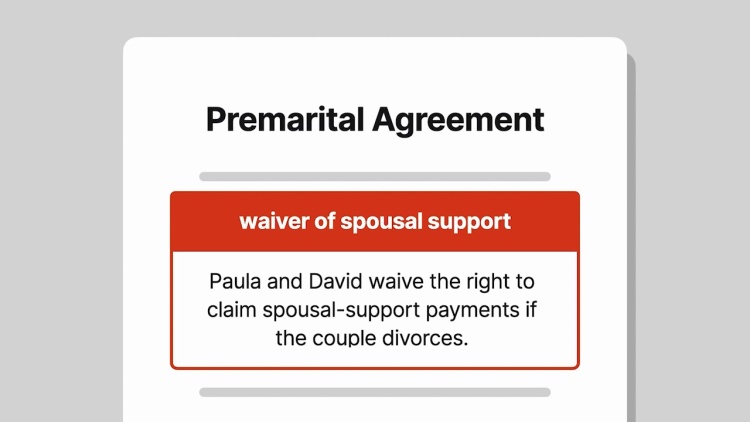Lane v. Lane
Kentucky Supreme Court
202 S.W.3d 577 (2006)
- Written by Craig Conway, LLM
Facts
Three days prior to the marriage between Paula Lane (plaintiff) and David Lane (defendant), the Lanes entered into an antenuptial agreement that included disclosures of assets and provided that each party’s separate property would remain separate in the event of divorce, including David’s 401(k) plan, profit-sharing plan, and partnership interest in a brokerage firm. The agreement further provided that each party waived the right to claim spousal support in the event that the marriage was dissolved. After a nearly 10-year marriage and the birth of two children, Paula and David sought a divorce. At the time of the petition, Paula was serving as the caretaker of the children after having worked for a time as a hotel-desk clerk. David was a stockbroker earning approximately $1,000,000 annually. The trial court found the provision regarding the waiver of spousal support to be unconscionable and awarded Paula $12,000 per year in support for three years. The trial court also concluded that David’s 401(k) plan was marital property, despite the language contained in the antenuptial agreement. David appealed. The court of appeals reversed and strictly enforced the agreement. The Supreme Court of Kentucky granted certiorari to review.
Rule of Law
Issue
Holding and Reasoning (Lambert, C.J.)
Concurrence (Graves, J.)
Dissent (McAnulty, J.)
What to do next…
Here's why 911,000 law students have relied on our case briefs:
- Written by law professors and practitioners, not other law students. 47,100 briefs, keyed to 997 casebooks. Top-notch customer support.
- The right amount of information, includes the facts, issues, rule of law, holding and reasoning, and any concurrences and dissents.
- Access in your classes, works on your mobile and tablet. Massive library of related video lessons and high quality multiple-choice questions.
- Easy to use, uniform format for every case brief. Written in plain English, not in legalese. Our briefs summarize and simplify; they don’t just repeat the court’s language.





